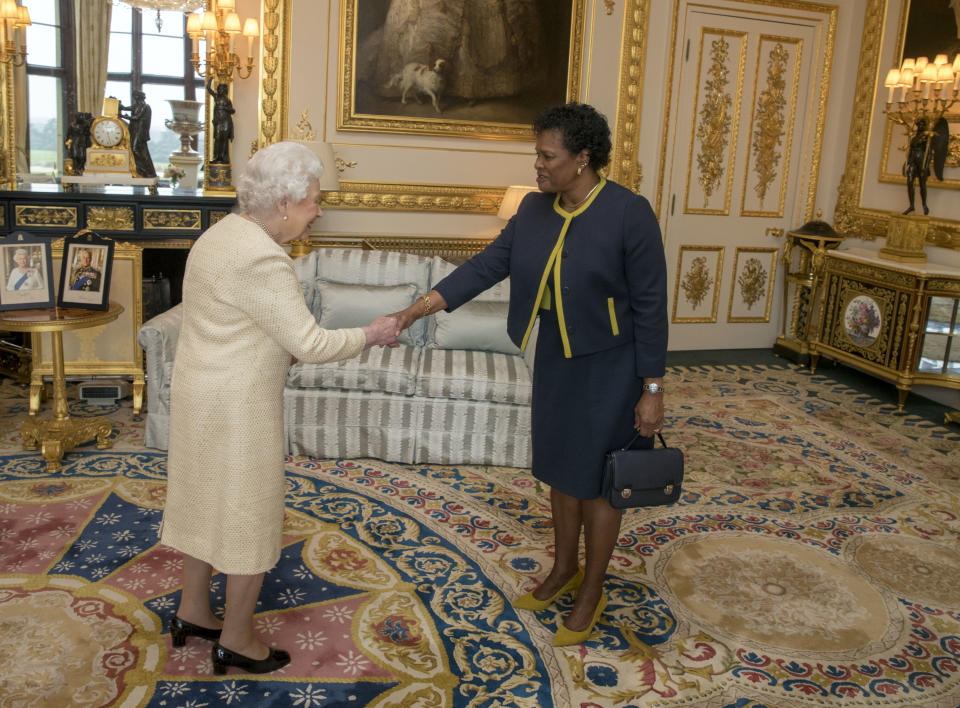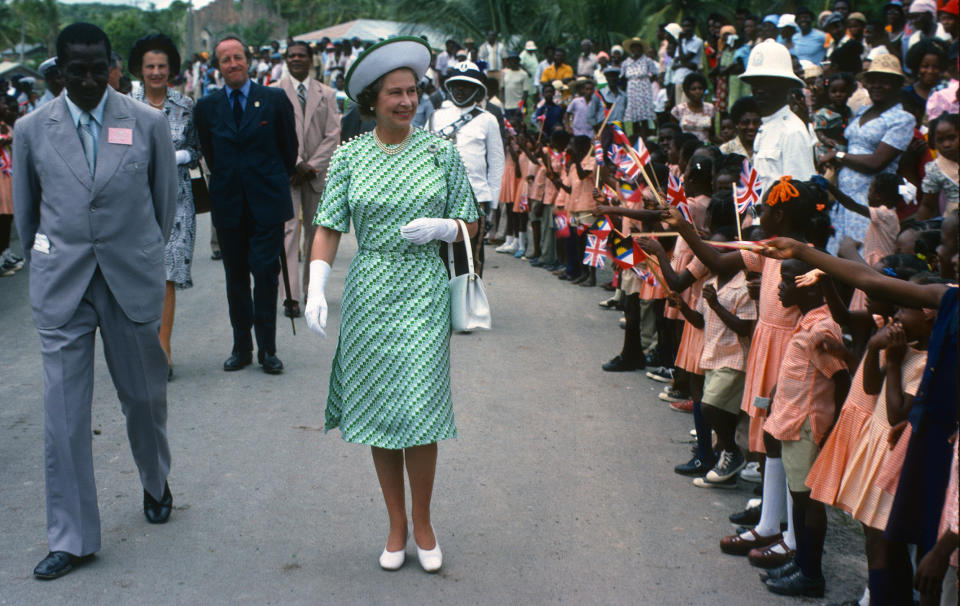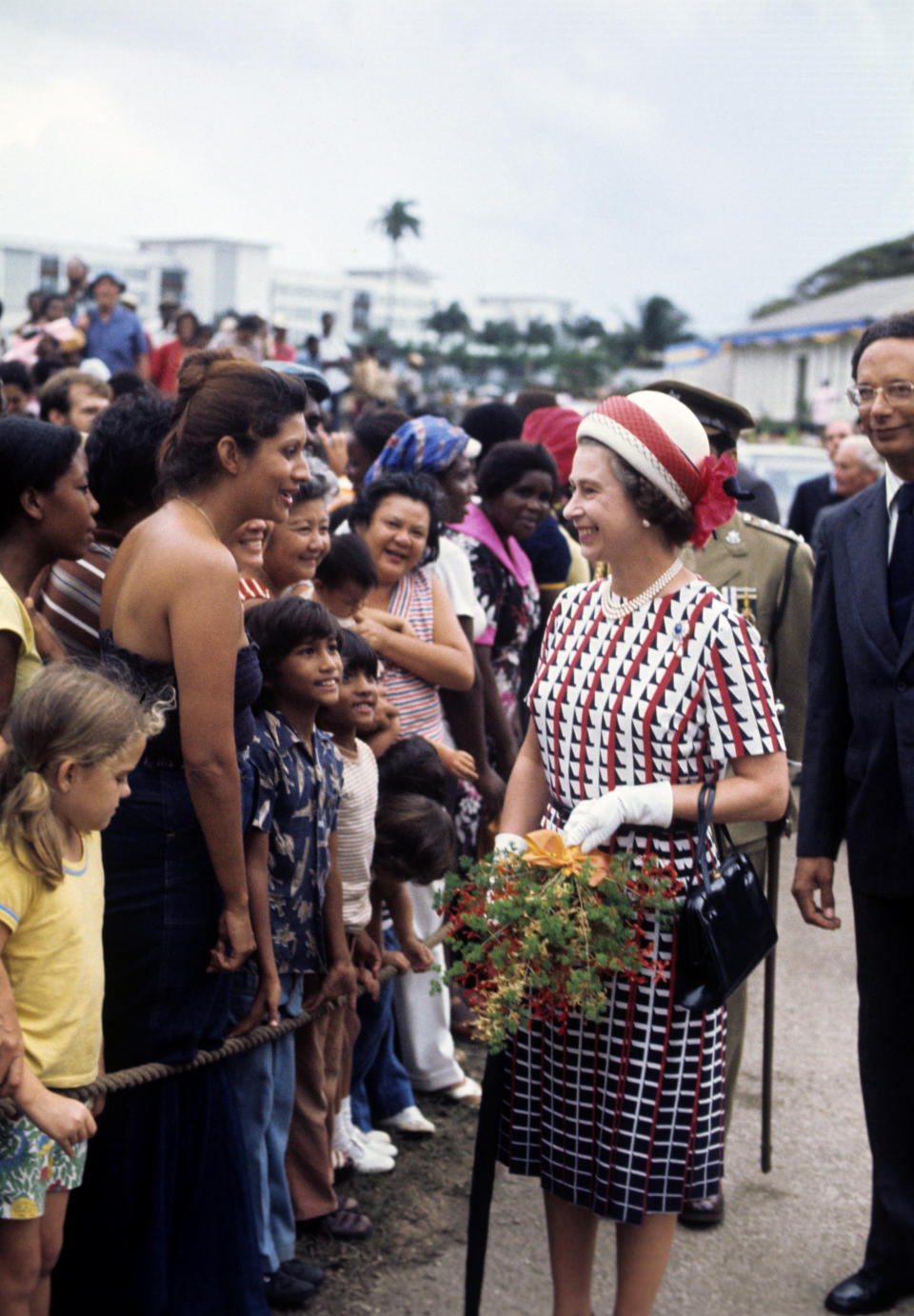Queen responds after Barbados removes her as head of state - 'it's a matter for the people'
Watch: Here’s why Barbados wants to remove Queen Elizabeth as its head of state
The Queen has said the decision to remove her as head of state in Barbados is one to be made by the country’s people and government.
On Tuesday, Barbados announced it intended to “fully leave our colonial past behind” and said “Barbadians want a Barbadian head of state”.
A speech written by prime minister Mia Mottley and read by governor-general Dame Sandra Mason said the country would aim to make the move ahead of its 55th anniversary of independence, which is November 2021.
Dame Sandra added: “This is the ultimate statement of confidence in who we are and what we are capable of achieving.

“Hence, Barbados will take the next logical step toward full sovereignty and become a republic by the time we celebrate our 55th anniversary of independence.”
A statement from Buckingham Palace on Wednesday said: “This is a matter for the government and people of Barbados.”
Read more: Is Prince Harry right to take a pop at the Queen's Commonwealth?
The Prime Minister’s Office agreed it was a “decision for Barbados and the government there”.
A Number 10 spokesman said: “We obviously have a shared history and remain united with Barbados in terms of history, culture and language, and we will continue to have and enjoy a partnership with them as members of the Commonwealth.”
Barbados gained independence in 1966, and in 2016, the Queen praised the island nation saying: “Since you became an independent country in 1966, you have continued to flourish and grow into a strong and confident nation.

“The extraordinary talents of your people, from the cricket field to the music industry have been admired and recognised throughout the world.”
Guyana, Trinidad and Tobago and Dominica have all made the same move of removing the Queen as head of state after independence.
They are still in the Commonwealth, a voluntary network of 54 nations which work for common ideals.
The Commonwealth’s role and function has been raised in recent months following the Black Lives Matter movement across the UK and the US.
Prince Harry and his wife Meghan Markle, who remain president and vice president respectively of the Queen’s Commonwealth Trust (QCT) despite not being working royals, have raised issues in recent weeks, as they forge their new path in California.
Watch: What is the Commonwealth?
Read more: Nine things the Queen has said about the Commonwealth she gave 'heart and soul' to
In July, on a call with representatives from the QCT, Harry said: “When you look across the Commonwealth, there is no way that we can move forward unless we acknowledge the past, and guess what, everybody benefits.”
Meghan said: “We’re going to have to be a little uncomfortable right now, because it’s only in pushing through that discomfort that we get to the other side of this and find the place where a high tide raises all ships.
“Equality does not put anyone on the back foot, it puts us all on the same footing – which is a fundamental human right.”
Barbados’ decision could trigger other nations to make the same move. The issue has been raised on several occasions over the years by Jamaica, but the country’s constitution makes it difficult.

According to the University College London: “The difficulty lies in the Jamaican constitution, which has very high thresholds for constitutional change: two thirds majorities in the House of Representatives and the Senate, and any change to the monarchy must also be submitted to referendum.”
Australians have also debated the same issue, but in a referendum in 1999, the majority of people voted to keep the Queen as their head of state.
Nations which have the Queen as head of state have a governor-general who represents the Queen in that country.

 Yahoo News
Yahoo News 
